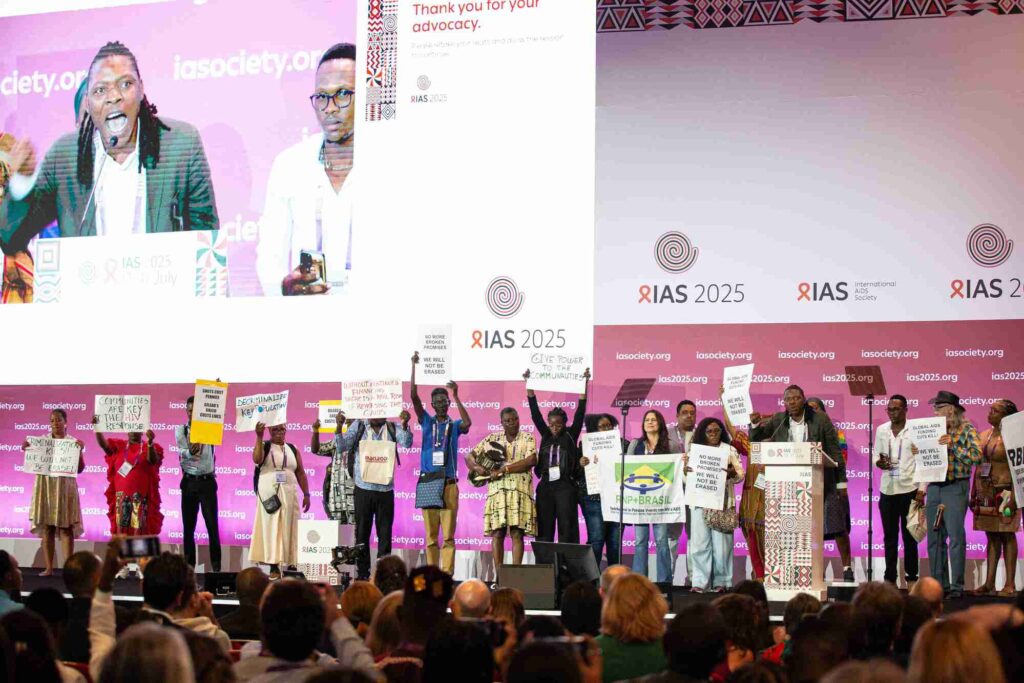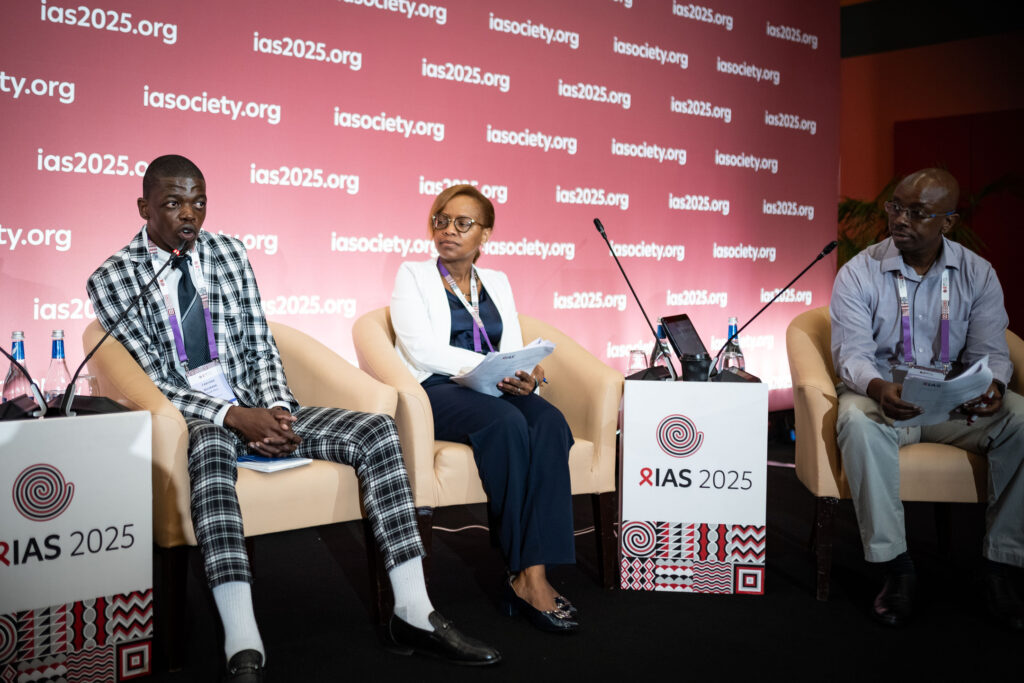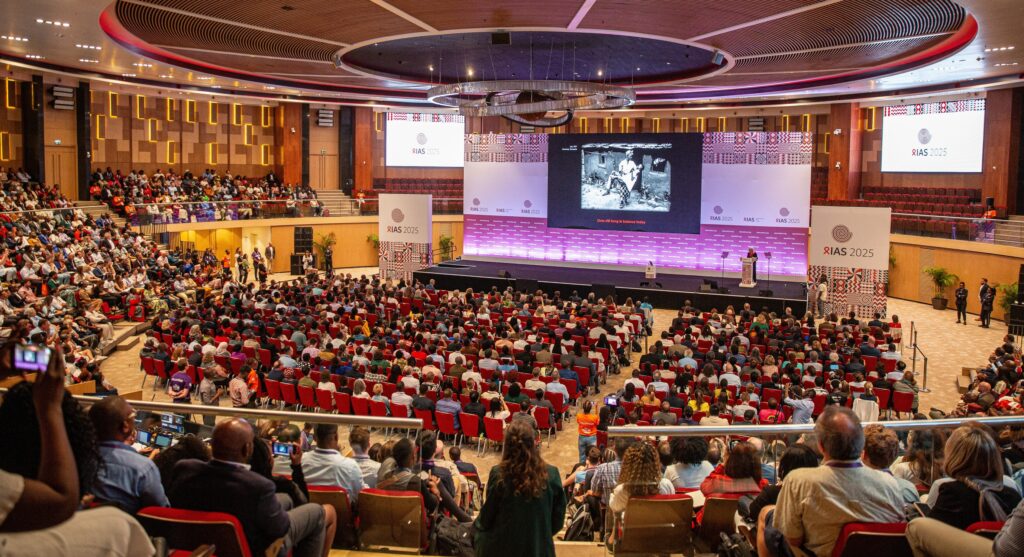July 25, 2025
IAS 2025 Kigali reaffirms what it will take to keep HIV progress from sliding back
Science and equity must move together, supported by sustained funding, to keep the HIV response on track.

The world’s largest gathering on HIV science, the International AIDS Society Conference, returned for its 13th edition last week, landing at a time when momentum and uncertainty are running side by side. IAS 2025 in Kigali brought together more than 4,000 delegates just as scientific progress continues to accelerate, while global funding slows and hard questions resurface around political will, access, and equity.
Expanding Options for HIV Prevention
Long-acting PrEP drew wide attention throughout the week, with the World Health Organization (WHO) releasing new guidelines endorsing injectable lenacapavir (LEN) for HIV prevention. With just two injections a year, LEN offers the kind of convenience many people have been waiting for, especially those who struggle with daily pills or frequent clinic visits. Delegates welcomed updates on procurement and rollout, including a Global Fund agreement that could make LEN available in some countries by 2026. There was also growing interest in future options like Merck’s oral PrEP candidate MK-8527.
Still, questions around access kept surfacing. Delegates called for transparency on pricing and clearer timelines for rollout, especially in low- and middle-income countries. Without that clarity, many worry that once again, science may outpace delivery, leaving effective tools out of reach for those who need them most.
With prevention options broadening, the conference also reaffirmed the continued importance of HIV vaccine research. Researchers shared updates on antibody-based strategies, immunogen design, T-cell focused approaches, and integrated trial models. IAVI’s own work on germline targeting, including new findings from the IAVI G003 trial, contributed to discussions on B-cell responses and future vaccine candidates.
IAVI also hosted conversations on community engagement in early-stage vaccine research. One standout was Superbees Awakened, a digital game co-created with communities in South Africa and India to help demystify the science behind germline-targeting. The game uses local stories and behavioural insights to bring complex science into everyday conversations.

(IAS 2025, the 13th IAS Conference on HIV Science. Kigali, Rwanda. Sunday, 13 July 2025.)
Vaccine conversations brought equity to the fore. Speakers reminded participants that communities most affected by HIV should be part of shaping research and planning rollout, not just involved as trial participants. This built on the message shared by Rosemary Mburu of WACI Health in the opening session that “Community action is not the soft side of science, but rather it is what gives science its soul, its reach, and its relevance.” She pointed out that communities have led the HIV response from the start, often without support, and continue to organise, advocate, and deliver services that deserve sustained investment.
Keeping Cure Research Grounded
Cure research also found space in the programme, with updates on efforts to shrink the viral reservoir, influence immune responses, and better understand long-term remission. While a cure remains distant, the conversations pointed to the need for steady, ethical progress that reflects the realities of communities. In places where even treatment access remains fragile, managing expectations and communicating clearly is essential
The Funding Gap
The conference opened under the weight of sharp cuts to PEPFAR and growing concerns about the sustainability of HIV programmes worldwide. Governments, donors, and civil society are still trying to adjust. New projections shared during IAS suggested that scaling back PEPFAR support could leave over 700,000 people without PrEP and lead to thousands of new acquisitions in a single year.
At the opening session, Linda-Gail Bekker from the Desmond Tutu Health Foundation presented data showing steep declines in PrEP initiations, diagnostic testing, viral load monitoring, and treatment starts, all linked to the freeze in US funding. She called the moment a “precipice,” warning that without urgent action, the gains of recent decades could unravel.

Participants also raised concern that today’s pace of innovation, sometimes described as an “innovation pile-up”, risks overwhelming health systems and delivery mechanisms. Without strong funding, new tools like long-acting injectables, AI-supported care, and even next-generation vaccines may struggle to make it off the research bench and into communities.
We will not go back
The week ended where it began, with the resonating call made by IAVI board member Linda-Gail Bekker: “We will not go back”. For IAVI and many others, the road ahead means strengthening collaboration, supporting local partnerships, and ensuring that advances in vaccine science and prevention translate into real-world impact.
Watch a short IAS 2025 recap below.